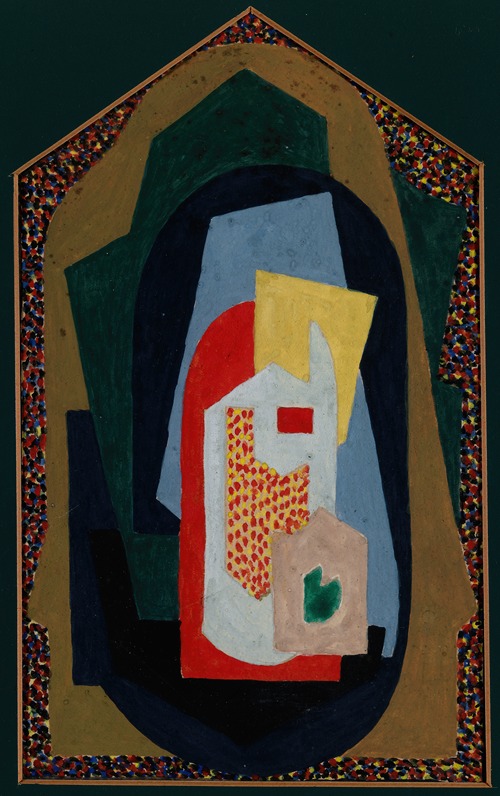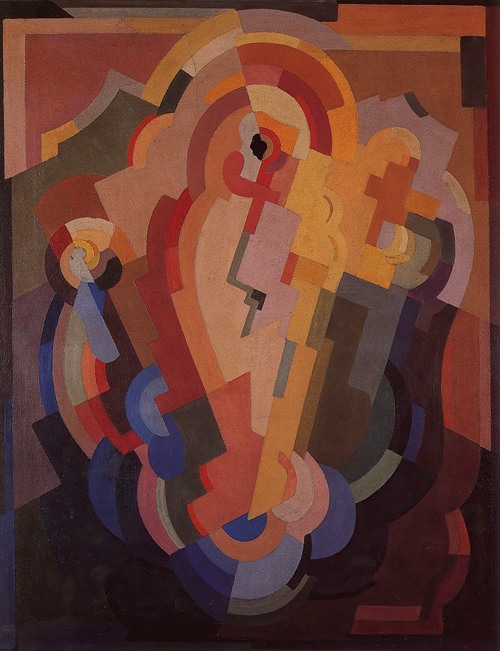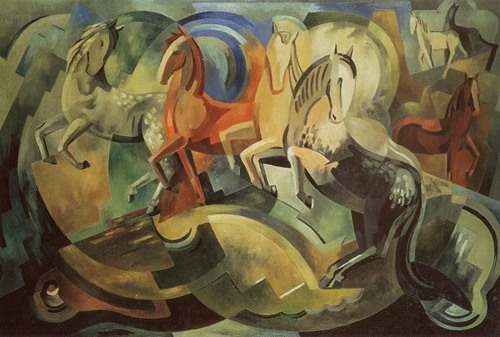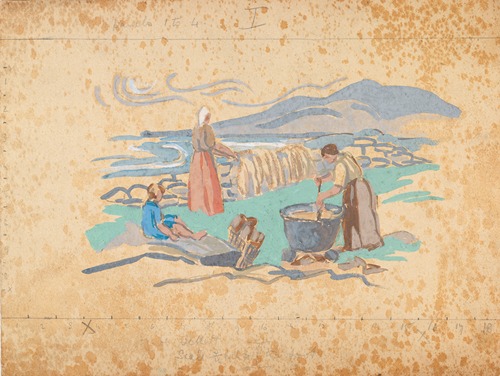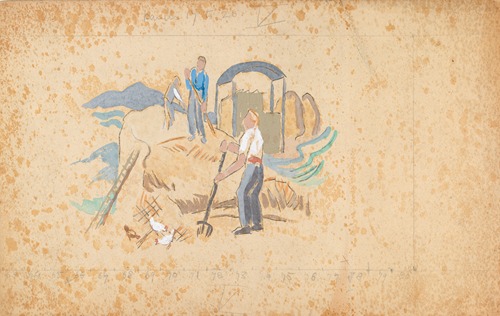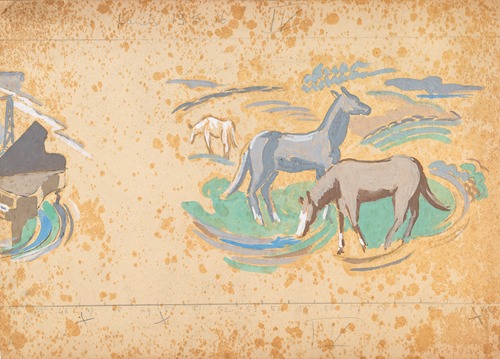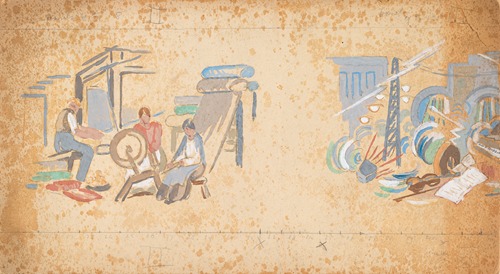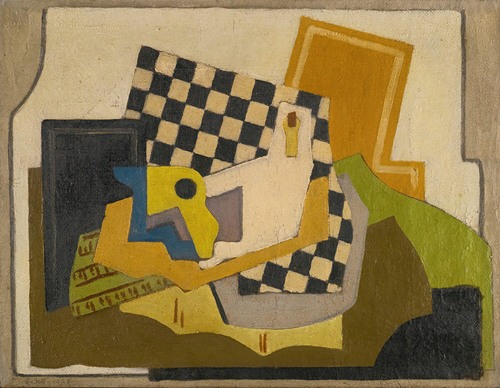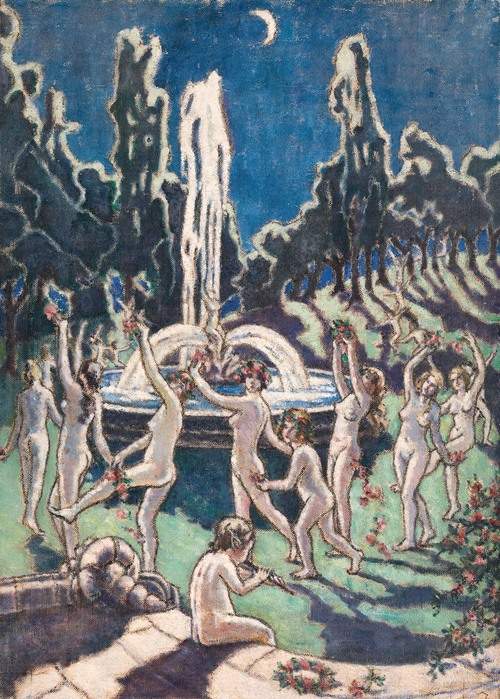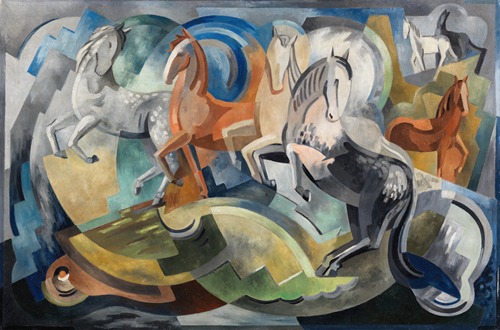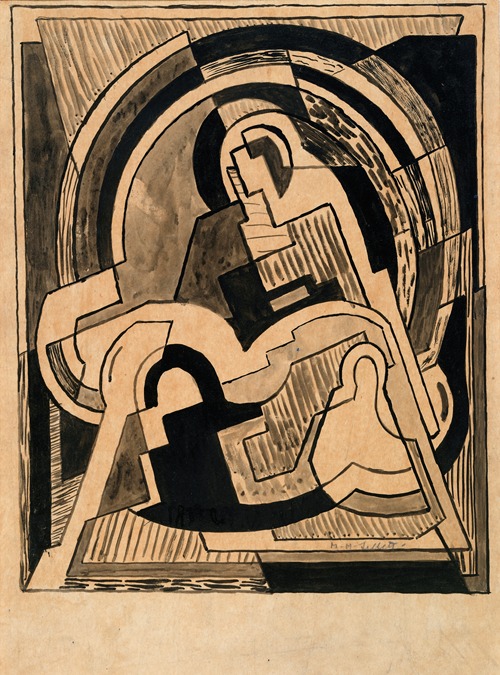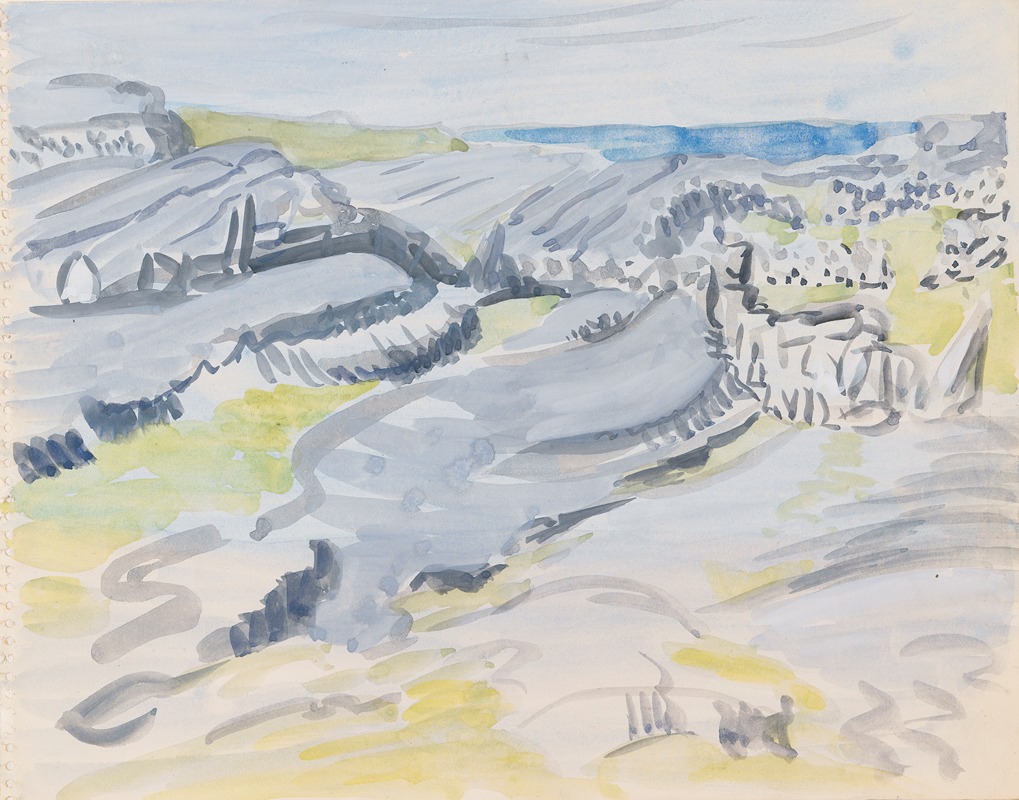
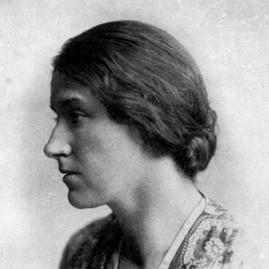
Mary Harriet "Mainie" Jellett was an Irish painter whose Decoration (1923) was among the first abstract paintings shown in Ireland when it was exhibited at the Society of Dublin Painters Group Show in 1923. She was a strong promoter and defender of modern art in her country and her artworks are present in museums in Ireland. Her work was also part of the painting event in the art competition at the 1928 Summer Olympics.
Jellett was born on 29 April 1897 at 36 Fitzwilliam Square, Dublin, one of the four daughters of William Morgan Jellett, a barrister and later MP, and Janet McKenzie Stokes. William and Eva were among the seven children of John Hewitt Jellett, Provost of Trinity College Dublin. Mainie's mother was an accomplished musician, and all her daughters received a musical education. Mainie's sister Dorothea (Bay) was the conductor of the orchestra at the Gaiety Theatre, Dublin. Her aunt was a pioneering woman doctor working in India, Eva Jellett.
Jellett's art education began at a young age of 11, when she received painting lessons from Elizabeth Yeats, Sarah Cecilia Harrison and from Miss Manning who had a studio on Merrion Row, and whose influence on Irish Artists of the time was considerable.
She later studied at the Metropolitan School of Art in Dublin. Her teachers included William Orpen, and his influence is apparent in her work from this period; Despite her artistic talent, she was still undecided about her future, and at this time was taking regular piano lessons with a view to becoming a concert pianist.
Her decision to become a painter was made after working under Walter Sickert at the Westminster Technical Institute in London, where she enrolled in 1917 and remained until 1919. She showed precocious talent as an artist in the impressionist style. In 1920, she won the Taylor Art Scholarship worth £50. The same year she submitted work to the annual exhibition of the Royal Hibernian Academy.
Mainie Jellett, Abstract Composition, 1935, oil on canvas, 119.5 x 96.9 cm
In 1921, along with her companion Evie Hone, she moved to Paris, where, working under André Lhote and Albert Gleizes she encountered cubism and began an exploration of abstract art. Her new style, including colour and rhythm was greatly inspired by her stay in France. After 1921 she and Evie Hone returned to Dublin but for the next decade they continued to spend part of each year in Paris.
In a 1943 essay entitled 'Definition of my Art' Jellett describes her art as having three revolutions inspired by her teachers; the first credited to Walter Sickert, the second to André Lhote and the third to Albert Gleizes.
In 1923, she exhibited two cubist paintings at the Dublin Painters' Exhibition. The response was hostile, with the Irish Times publishing a photograph of one of the paintings and quoting their art critic as saying of them 'to me they presented an insoluble puzzle'. The following year, she and Evie Hone had their first joint exhibition.
A deeply committed Christian, her paintings, though never strictly representational and sometimes completely non-objective, occasionally have religious titles and may in some respects resemble icons in tone and even, on occasion, in palette. In Irish Art, a Concise History Bruce Arnold writes: "Many of her abstracts are built up from a central 'eye' or 'heart' in arcs of colour, held up and together by the rhythm of line and shape, and given depth and intensity - a sense of abstract perspective - by the basic understanding of light and colour"
Jellett was an important figure in Irish art history, both as an early proponent of abstract art and as a champion of the modernist movement. Her painting was often attacked critically but she proved eloquent in defense of her ideas. Along with Evie Hone, Louis le Brocquy, Jack Hanlon and Norah McGuinness, Jellett co-founded the Irish Exhibition of Living Art in 1944.
Her work was an important part of the Active Age project in the IMMA, which was produced to rewrite the narrative of art and change the canon. Jellett's work was not very well known outside of Ireland but she was a pioneer of a national avant-garde and strongly supported the encouragement of young Irish artists. The IMMA decided to evaluate and reexamine the European canon and bring artists like Mainie Jellett to the front line.
Jellett died on 16 February 1944, aged 46, of pancreatic cancer.
